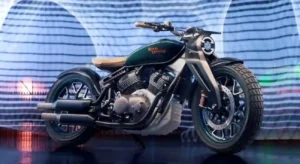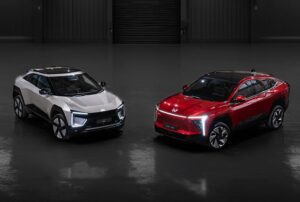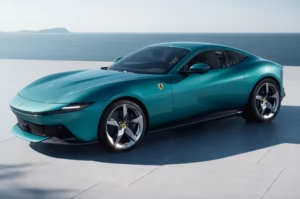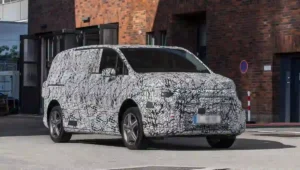Hybrid cars vs electric cars India detailed guide and information given here.
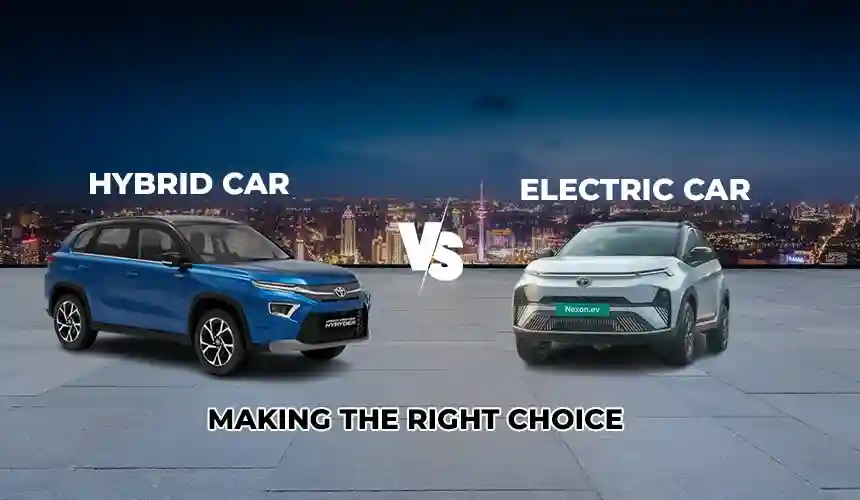
India is witnessing a green revolution in the automotive sector. Due to rising fuel prices, stringent emission norms and government incentives, both hybrid cars and electric vehicles (EVs) are gaining popularity. But which one is better suited for Indian roads in 2025? This guide compares hybrid and electric cars in India in terms of price, performance, infrastructure and environmental impact, so that you can make an informed decision.
What Are Hybrid and Electric Cars?
| Feature | Hybrid Cars | Electric Cars (EVs) |
|---|---|---|
| Power Source | Petrol engine + electric motor | Fully electric motor + battery |
| Charging | Self-charging via regenerative braking | Requires external charging |
| Emissions | Low (not zero) | Zero tailpipe emissions |
| Examples (India) | Toyota Hyryder, Honda City e:HEV, Grand Vitara | Tata Nexon EV, MG ZS EV, BYD Seal |
Price comparison : Hybrid vs Electric Cars in India Upfront Cost.
Hybrid Car : ₹16.8 lakh to ₹48 lakh+.
EV : ₹10 lakh to ₹25 lakh (after subsidy).
Running Cost (Average Estimated).
EV : ₹1.5–₹2/km (Electric).
Hybrid : ₹4–₹5/km (Petrol + Battery Assist).
Maintenance
EVs have fewer moving parts, so long-term maintenance is less.
It has more moving parts, so hybrids require servicing for both the engine and battery system.
Comparison of fuel efficiency and running costs.
Hybrid car : Runs at 25-28 km/l even in city traffic using electric assistance.
EV: Offers a range of 300-600 km per charge depending on the model.
Example: (For information only)
Tata Nexon EV offers a maximum range of 453 km.
Toyota Innova Hycross Hybrid Offers a mileage of ~23.2 km/l.
Infrastructure and facilities.
Electric
Over 26,000 public charging stations (2025) have been installed in India.
Fast chargers are still limited outside metro cities.
Home charging is required for greater convenience, as charging stations are not yet available in sufficient numbers everywhere.
Hybrid.
Hybrids do not require charging, they run on petrol and charge the battery while driving. Ideal for areas with poor EV charging infrastructure.
Performance on Indian roads.
EVs
EVs offer instant torque, smooth acceleration and a quiet cabin.
They are the best option for city driving and short journeys.
But range on highways can be a concern these days.
Hybrids
Hybrids offer balanced performance for city and highways.
There is no dependence on charging, and they are a great option for long journeys.
Government subsidies and tax benefits.
EVs
FAME II subsidy: ₹10,000/kWh (up to ₹1.5 lakh) is available in subsidy.
State-level incentives: Up to ₹2.5 lakh (e.g., Maharashtra).
Road tax and registration fee waiver for EVs.
Hybrid
Hybrid cars get limited incentives.
Lower GST (5%) is levied on some components.
Environmental impact.
EVs
Produce zero tailpipe emissions.
Reduce lifecycle emissions if charged by renewable energy.
Hybrid
Hybrid systems emit less CO₂ than petrol/diesel cars.
But still rely on fossil fuels.
Conclusion
Electric cars are the ideal option for urban users who have access to charging and want zero-emission driving. Hybrid cars, on the other hand, offer flexibility and peace of mind for long-distance commuters and those living in areas with limited EV infrastructure.
Both are smart options, future-proof choices, but the best car for you depends on your lifestyle, location and budget.
FAQS
Which is better for Indian roads: hybrid or electric cars?
Hybrid cars are better for long trips; electric cars are great for city driving.
Are hybrid cars cheaper than electric cars?
Hybrids cost less upfront, but EVs save more on fuel in the long run use.
Is there enough EV charging in India now?
Big cities have plenty of charging points, but smaller towns still need more charging stations.


